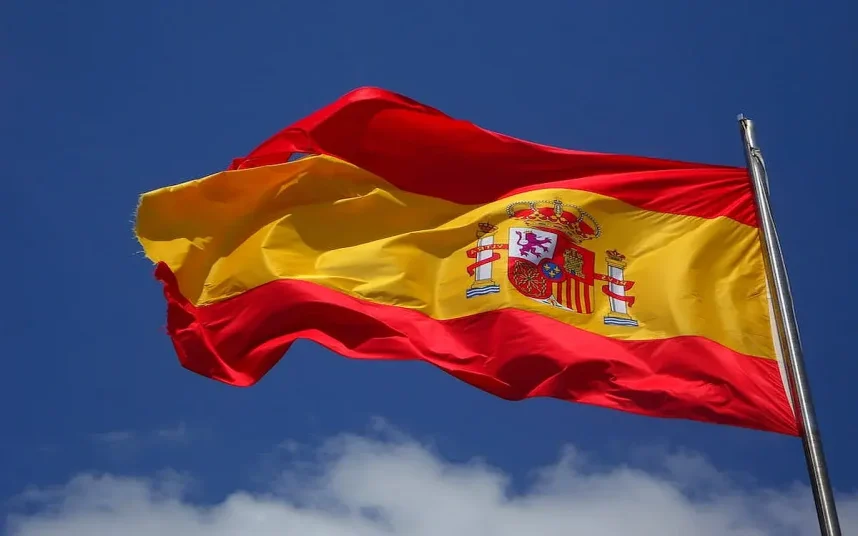Spanish Political Parties Use Gambling to Increase Support
Posted on: August 2, 2023, 10:28h.
Last updated on: August 2, 2023, 12:54h.
Recent snap elections in Spain haven’t improved the political climate, in which no single party has been able to garner overwhelming popular support. As a result, two political parties that have joined forces to take on the incumbent are using sports betting as a political weapon.

The political pairing formed by the Popular Party (PP) and Vox has already threatened the reigning Spanish Socialist Workers’ Party (PSOE, for its Spanish acronym) at various political levels. The two parties consolidated their efforts after realizing that neither had a chance on its own of knocking out the incumbent.
After Spain’s Prime Minister, Pedro Sanchez, called for a new election, the PP/VOX combination almost took over. However, neither it nor the PSOE secured enough votes. Now, both sides are trying once again to drum up support wherever they can.
Gambling as a Political Tool
PP/Vox has approved the installation of 36 new sports betting venues in the autonomous community of Castilla y León, primarily in that community’s provinces of Salamanca and Valladolid. The Castilla y León government, headed by the PP’s Alfonso Fernández Mañueco and Vox PP Juan García Gallardo, has granted licenses to Sportium for the launch of new properties through 2026.
This decision, on the surface, appears to be a snub of the executive branch of Spain’s government, which this past March, sent new gambling reforms to the Spanish Parliament. While autonomous communities had already taken some measures, the legislation created a national minimum distance allowed between betting shops and schools, as well as between gambling venues.
There’s no indication that the PP/Vox coalition approved the new betting shops as an intentional tool to garner support. Their decision, however, shows that the two parties are, directly or indirectly, taking steps that go against the PSOE and its policies on various topics.
The increase of legal sports betting venues in the region occurs at a time when the problem of problem gambling is at the center of social discussion. As Spain and the PSOE have heavily emphasized an anti-gambling approach, this new decision by PP/Vox takes things in the opposite direction.
Compulsive gambling, according to some, mainly affects the most vulnerable classes. Spain’s gaming regulator and the Ministry of Finance, to which the regulator reports, have spent much of their time increasing gaming regulations, which the PP/Vox decision doesn’t seem to support. As a result, a debate now rages over the unification of the government and its actions related to gambling oversight.
Spain’s Future at Stake
There’s more at risk than just the debate over the merits/pitfalls of gambling and sports betting. Political in-fighting in Spain has reached new heights, and the PP/Vox coalition’s surprisingly fast rise on the scene emphasizes the fractured political status of the country.
Both the PSOE and PP/Vox are working overtime to find more backing. On August 17, Congress will meet to discuss what happens next. Spain’s Chamber of Deputies will then vote on who will take over as prime minister.
A candidate can only win if he or she receives approval from at least 176 of the 380 available seats. Right now, no single party controls more than 172.
Should no one receive the obligatory minimum, a simple vote will be held, but only if deputies agree to do so. If not, members of parliament will then have 60 days to appoint a new prime minister. Failing any progress at that point, Spain’s Parliament will be eliminated, leading to new elections.
Should PP/Vox prevail, there’s a good chance that Spain will slip back into a dark time. Vox has said that it wants to essentially rewrite the constitution to prevent any talk of secession by autonomous communities. That’s a direct attack on Catalonia, home to Barcelona, which has occasionally discussed separation behind closed doors.
Vox has also said it wants to disband the Mossos d’Esquadra, the community’s autonomous police force, which supersedes almost completely Spain’s Civil Guard and National Police forces.
Were the coalition to prevail and Vox to get its way, it could lead to issues like those seen previously in Spain’s Basque autonomous community. For decades, it sought independence from Spain, with the Basque Homeland and Liberty (ETA, for its Basque acronym) separatist group carrying out numerous terrorist attacks in support of its freedom.
Related News Articles
New Gambling Regulations Arrive in Galicia, Spain
Spain’s Balearic Islands Make Sweeping Changes to its Gambling Market
Spanish Soccer Match-Fixing Ring Cracked by Interpol
Most Popular
FTC: Casino Resort Fees Must Be Included in Upfront Hotel Rates
Genovese Capo Sentenced for Illegal Gambling on Long Island
NBA Referees Expose Sports Betting Abuse Following Steve Kerr Meltdown
UPDATE: Former Resorts World & MGM Grand Prez Loses Gaming License
Most Commented
-
UPDATE: Whiskey Pete’s Casino Near Las Vegas Closes
— December 20, 2024 — 31 Comments -
Caesars Virginia in Danville Now Accepting Hotel Room Reservations
— November 27, 2024 — 9 Comments -
UPDATE: Former Resorts World & MGM Grand Prez Loses Gaming License
— December 19, 2024 — 8 Comments -
FTC: Casino Resort Fees Must Be Included in Upfront Hotel Rates
— December 17, 2024 — 7 Comments
















No comments yet